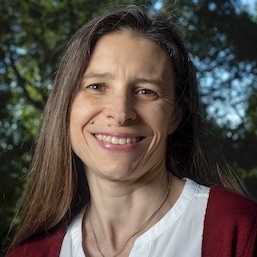Susannah Tringe
Division Director, Environmental Genomics & Systems Biology
Divisions
Environmental Genomics and Systems Biology
- Molecular EcoSystems Biology
Secondary Affiliation:
- User Programs
Biography
Major foci of Tringe’s current research efforts are the roles of microbial communities in wetland carbon cycling and the interactions of plants with their associated microbiomes. She is the Laboratory Research Manager for the ENIGMA Scientific Focus Area. Tringe earned her bachelor’s degree in physics from Harvard University and her doctorate in biophysics from Stanford University. In her nearly two decades at Berkeley Lab, Tringe previously served in multiple roles at the DOE Joint Genome Institute (JGI), including Deputy of User Programs and head of the Metagenome Program. She is the 2021 recipient of the Ernest Orlando Lawrence Award, one of DOE’s highest honors, and was named a Fellow of the American Association for the Advancement of Science (AAAS) in 2018.
Research Interests
Sequence-based approaches to studying microbial community assembly, function and dynamics in terrestrial ecosystems.
Recent Publications
Related News
Examining the Role of Bacteria in Produced Water Treatment
Berkeley Lab scientists are studying a particular kind of bacteria found in water leftover from oil and gas extraction to help inform the biological treatment of wastewater.
University of Duisburg-Essen Delegation Explores Collaborative Opportunities with Lawrence Berkeley National Laboratory
Building on a Memorandum of Understanding signed between UDE and Berkeley Lab researchers, a kick-off meeting focused on future collaborations in the fields of genomics, structural biology, bioimaging, and water research.
Rising Sea Levels Could Mean Higher Wetlands Methane Emissions
Area researchers led a team that examined the microbial, chemical, and geological features of 11 wetland zones in the Bay Area. Their findings indicate that the factors governing how much greenhouse gas is stored or emitted in natural landscapes are more complex and difficult to predict than previously thought.




